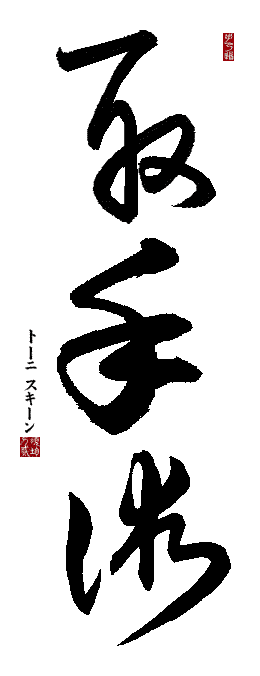Personally, I thought the “Anomaly”
fallacy had been (finally!) dismissed as being untrue (or at
least “inaccurate”). This fallacy was commonly associated
with a person's ability to perform a “Tuite” technique upon
certain individual's (the so-called “Anomaly”). This was
commonly demonstrated by various (popular) “instructors”, by
exampling particular individual's (that they provided). They
would perform (at least “their” version of) a “Tuite”
technique upon an individual, and “show” that the technique
couldn't/wouldn't work upon that individual.
It was never even suggested that the
individual (performing the technique) was (simply) unable
to perform the technique (correctly) upon that individual, it
was “always” that the person was one of the (implied)
“anomalies” and that the technique couldn't/wouldn't work
on them. The person (who couldn't perform the technique) would then
claim that a certain percentage of the population (which
varied, depending upon the person providing the claim)
couldn't have those techniques performed upon them.
Though not necessarily being an untrue
claim, the percentage provided was (as the percentage provided was
commonly between 30-40%) definitely inaccurate. To compound
the person's ignorance (of “Tuite”), the person would commonly
claim that more “power” would be required to cause the technique
to function.
Though being sure that there are
people who may be resistant to those manner of techniques, the
claim that the number is of the quantity claimed is ridiculous.
It (more often) only requires that the technique be done correctly
(which in every example I have witnessed, it wasn't). I
have been teaching this art for over 40 years. I've performed these
techniques upon (literally) hundreds of individual's. I have
yet, to of encountered one of those “anomaly's”
(yet, these individual's claim that they encounter one or two
at every seminar???). There do exist individual's who are
difficult (meaning that the technique must be performed
exactly correct to elicit the desired response) but we have
encountered NONE for whom the techniques could not be achieved.
Obviously it's easier to make the
claim that there are “anomaly's” out there, and whatever it is
that they are teaching, won't work on them. That would infer
a lack of knowledge/ability upon the
person attempting the technique (something that these
individual's would never admit to).
Oyata taught that Tuite required
(correct) technique. The
size and/or strength (of either the tori or uke) was irrelevant.
This means that the smallest student, should be able to utilize the
technique upon the largest/strongest student, and achieve the desired
result. The fact that an individual has a high pain threshold,
or is extremely flexible, makes NO difference for achieving
the desired result. Using the “anomaly” excuse, should only be a
sign that the individual doesn't (completely/correctly) understand
the techniques application.
Obviously “strikes” used in
conjunction with a techniques application will (often) make that
technique easier to apply/make function (mostly by through
being a distraction). That shouldn't imply that doing so is a
requirement for it's functionality. Slow Practice of
the instructed Tuite motions should be done to understand how/why
they do or don't work (for the individual). The addition of
superlative strikes (whether hand or foot) are (almost) always
included in actual defensive situations.
Seminars (in general) do not allow one
to learn/practice a newly shown technique (Tuite, in particular). There is insufficient time to do
so. These types of techniques require months (of practice) to
perfect (or even become somewhat competent with). Seminars are
intended to elicit interest in further instruction (commonly
by the presenter of the seminar). They should not be considered
(serious) “Training” sessions. Nor should one believe that they
are (completely) competent in a techniques application after having
(only) learned a technique at/during their attendance at a seminar.



No comments:
Post a Comment